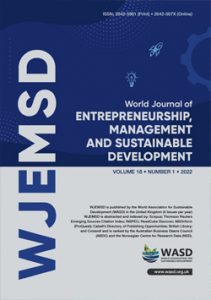Globalisation and human rights: Some implications for the African content and government, C.M. Bank
 C.M. van der Bank
C.M. van der Bank
Vaal University of Technology
South Africa
DOI: 10.1108/20425961201000014
Abstract: “Globalisation” is a popular term used by governments, businesses, academics and a range of diverse nongovernmental organisations. While national governments for many years dictated the international political and economic scene, international organisations such as the World Bank, International Monetary Fund (IMF), World Trade Organisation (WTO), New Partnership for Africa’s Development (NEPAD) and the African Union have become now significant role players. The main issues are how to tackle the challenges of globalisation and international trade and how we can ensure domestic growth and development in South Africa. While the present South African Constitution is, indeed, an admirable document which protects individual human rights, the international consensus is moving in the direction of incorporating ethnic minority rights as part of the main corpus of human rights jurisprudence. The call of the African Renaissance has, therefore, found fertile ground. It has come at a time when the political environment has been conducive. The objective, however, cannot be realised solely on a trade‐investment‐based approach. A balanced approach with an emphasis on human rights is required.
Keywords: Globalisation; International trade; International legal obligations; Right‐based approach; Human rights; Moral values and balanced approach.
Citation: van der Bank, C.M. (2010), "Globalisation and human rights: Some implications for the African content and government", World Journal of Entrepreneurship, Management and Sustainable Development, Vol. 6 No. 3, pp. 181-191. https://doi.org/10.1108/20425961201000014

